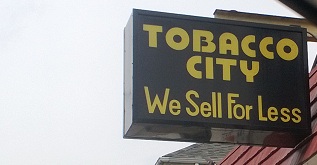What if I told you that marketing is not about money?
You may be tempted to call me a heretic. You might think there was a hole in my bag of marbles. Or you might call me a hypocrite, because the service I provide my clients (and hopefully the information I freely share with people like you) helps people make money through marketing.
But I’m neither crazy nor hypocritical. Maybe I’m a heretic, since I believe some things about business that a lot of people disagree with. If you can stand a few moments of marketing heresy, please read on. I think you’ll learn a few significant lessons.
Money Is Not the Issue
Last summer, I learned something profound from a brilliant business coach who was my client. Well, I was already familiar with the principle she was teaching, but the way she explained it had a big impact on me. She told me that when prospects don’t buy from you, or clients won’t pay the kind of fees you deserve, it’s not because of a lack of money. Money is not the issue. Rather, the issue is one of priority. The client has money, but you don’t get it because he sees more value in spending it on something else.
When it’s decision making time, priorities run the show. People will always find ways to pay for what’s most important to them. If customers aren’t buying or clients are hiring, your product or service is not a major priority for them.
Eugene Schwartz taught us that you don’t create desire in your audience. What you want to do is channel their pre-existing desire toward your product. The same is true for priorities. In general, you cannot establish the priorities of your market. They are self-generated. Marketing can’t change the priorities they’ve already set. At best, you can communicate how your product will help them take care of what matters most deeply to them.
That means that your message will, by default, not appeal to everyone, as not everyone has the same priorities.
For example, Olay products and Proactiv are both designed to help people feel better about the skin on their faces. But they appeal to different groups. Olay is big on anti-aging, something most teenagers aren’t worried about yet. Proactiv helps with acne, a problem that usually becomes less common with age.
Different audiences. Different priorities. Different marketing messages. Also note that people would hate pimples and wrinkles with or without million dollar advertising campaigns.
Price Matters Less Than You Think
When there’s been a bad car accident, no one is thinking about how much the ambulance company will charge. They’re first thoughts aren’t about insurance deductibles. When life is hanging in the balance, they call 911 as fast as they can.
This is an extreme example, but it makes the point very clear. The importance of price is inversely proportional to the strength of the desire or need. The only thing that matters about the ambulance is the speed with which it can bring medical attention to the people in the car accident. This one benefit outweighs every other factor.
When your product or service fills a need that strong, price doesn’t matter much.
If one ambulance can arrive on the scene even a few minutes sooner than the next “competitor,” would you complain that their price is two times higher? Would you ask the 911 operator to send the cheapest ambulance?
If you’re having difficulty selling your product or service, it’s probably because
1) you’re not selling something people want
2) you’re not giving them a good enough reason to buy from you (showing them how your product can fulfill one or more of their priorities), or
3) you haven’t built up trust. People won’t buy from anyone they don’t trust.
Price may not be to blame. And if you are selling what people want, helping them envision their top priorities satisfied by your product, and demonstrated your trustworthiness, price may matter very little.
Marketing Is NOT About Money
Marketing and selling are not essentially about money; they are points of connection.
You have something to give to the world in terms of talents, expertise, products and/or service. Everyone has multiple needs and desires. Marketing and selling are ways you connect people in need with solutions. Everybody comes out a winner.
If you do it right, marketing has profitable results. But money should not be the cause. The difference may seem insignificant, but I assure you that it’s not.
When money is the end goal, you may be tempted to resort to deception, hype, high-pressure techniques. You could fall into desperation. You may even consider selling products that suck in order to drive revenue up.
When your goal is connecting, you focus on showing your audience that you can help them get the things they want and need in life. You can show them how your strengths can be applied to areas where they need assistance. When your customers are what really matters to you, magic happens.
Make no mistake: marketing should make money. If it doesn’t, you’re doing something wrong, and you need to fix it. But when money becomes the driving force behind it, fear and greed have a tendency to creep in.
Remember what Peter Drucker said: “The purpose of a business is to create a customer.” He didn’t say the purpose is to make money. The truth is that if you make happy customers, you’ll be in the best possible position to earn profits.



